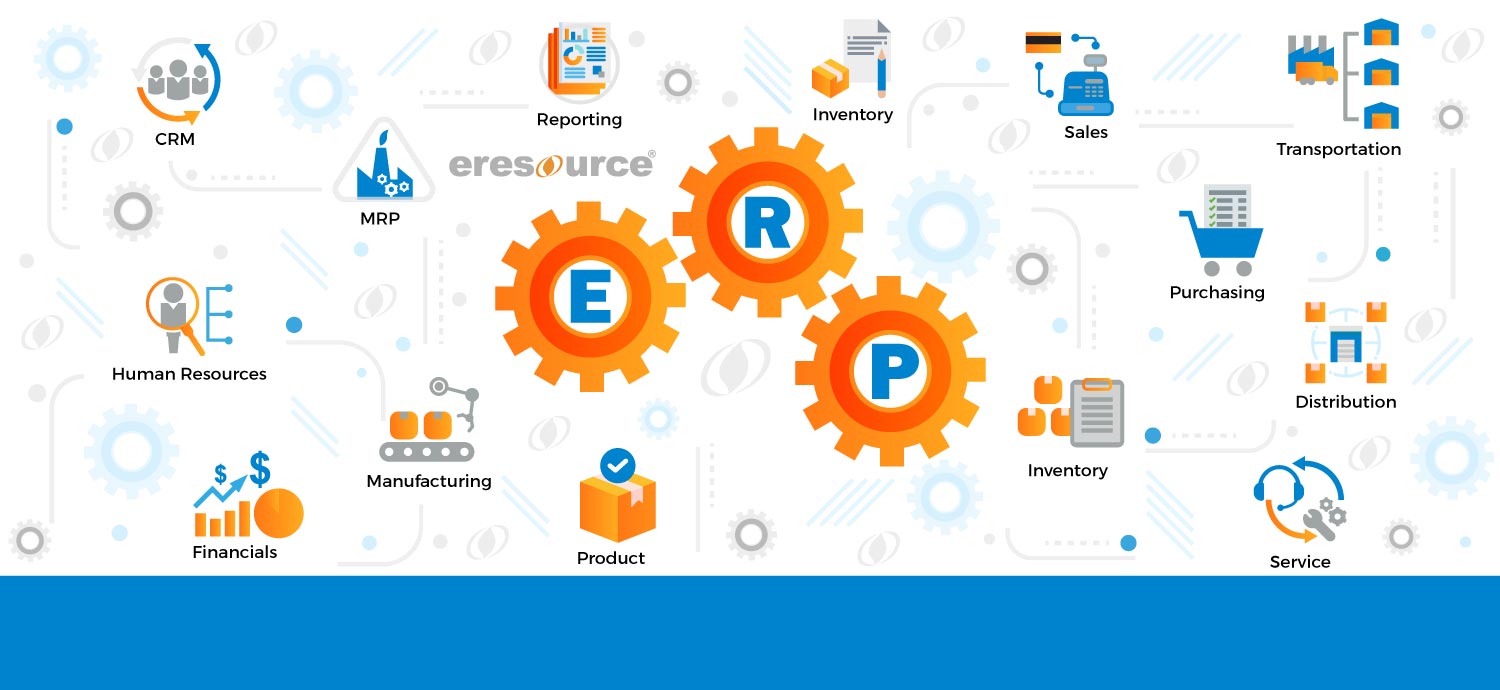The influence of enterprise resource planning systems is evident, with the global ERP software industry predicted to be worth $41.69 billion by the beginning of 2021. While that figure is remarkable, those who have never used the program may struggle to grasp why ERP is crucial to their company. However, as globalization shrunk the market for many businesses, it is critical to seek out any tool to provide your company with a competitive advantage. Many businesses achieve this through the usage of ERP.

Benefits of using ERP
Organizations that want to manage their company processes in a consolidated and integrated system employ ERP. It is often used by supply chain firms to keep track of all the moving pieces of manufacturing ERP software and delivery. However, ERP can be used in various industries, including healthcare, charitable organizations, construction, and hospitality. ERP benefits can be used by organizations that need to manage their employees, customers, and inventory.
Also Read – Road Construction Software
Why is ERP critical in coming years?
Enterprise resource planning software handles various business operations, but what makes it superior to other options? While ERP has identical goals to other solutions, its characteristics set it apart in the software industry. Here are the eight reasons why any firm should evaluate the necessity of enterprise resource planning (ERP) systems:
More money saved
Even though several suppliers have introduced flexible pricing in recent years, ERP packages are still a significant investment. For many, the high expenditures make it appear doubtful that the program will save your firm any money. However, once you’ve overcome the price shock, it’s easier to understand how ERP may give a great ROI.
By integrating eresource erp system, you can assist your employees in making better use of their time. Users cannot search for information across several systems using ERP, and the central database makes it much easier to access information.
Also Read – ERP Software for Chemical Manufacturing
Improved collaboration
The characteristics of eresource ERP software differ widely based on the program, but all systems increase collaboration in some way. As previously stated, the centralized database of eresource erp is an essential component of what distinguishes an ERP. This database gives your firm a single source of truth from which to work, decreasing errors caused by working with inaccurate data and thus reducing expenses. Furthermore, since all team members have access to the company-wide data required; a central database avoids any hesitancy throughout projects.
Again, there is no requirement to combine data from diverse systems or sources. Because all the data is compiled, saved, shared, and accessible through a single system, there is no need to be concerned about the data files’ accuracy, completeness, or security.
This is more difficult to say if your staff repeatedly enters the same client information into multiple platforms. When you don’t have an ERP, you allow human mistakes into your processes, which may simply be prevented.
Also Read – ERP for Steel Industry
Better analytics
A centralized information database can also help you improve your analytics and reporting. Because an ERP records and maintains all data entered by users, it is an excellent business intelligence tool. eresource ERP software makes it faster for your team to generate numerous reports as long as your provider provides robust capabilities. Without an ERP, reports that could take days to research and compile would require only minutes.
Most construction ERP software packages include a configurable dashboard where executives can view reports when they initially log in. Income and spending statements and bespoke KPIs that provide insight into specific processes may be included in these reports. Immediately accessing these reports allows you and your team to make better decisions. Finally, reports often have access limits to ensure that only relevant company personnel see vital company data.
Also Read – ERP for Engineering Firms
Improved productivity
Complex jobs are unavoidable using traditional methods. Historically, personnel spent hours preparing reports, maintaining inventory levels, tracking timesheets, and processing orders. In addition to eating up time, these processes weaken staff morale and expose you to human mistakes. Even the best staff members will make a mistake after inputting the same line of data into numerous forms after the hundredth hour.
The eresource ERP may automate and streamline time-consuming tasks if you choose the proper system. The database in ERP software avoids superfluous operations like data entering and enables the machine to do complex computations in minutes. This frees your team members’ time to undertake more intelligent work, enhancing your labour ROI. As a result, ERP boosts your company’s production, efficiency, and profitability.
Also Read – Project Based ERP
Conclusion
The days of using ERP software as on-premises back-office software applications are long gone. People can now work from anywhere and anytime, thanks to cloud computing. eresource ERP software is accessible with mobile platforms for a decentralized workforce in today’s tech-driven society. Modern ERP software solutions cut support time, allowing firms to respond swiftly to fluctuating markets and industry trends.
As a result, ignoring the importance and influence of ERP software in today’s data-driven industry would be naive. Because corporate data and processes are continuously supplied into eresource ERP systems for analysis, organizations may better align separate divisions and enhance workflows. It saves money, assets, time, and other variables significantly.
Email at sales@eresourceerp.com for free ERP Software Demo!
Also Read – ERP for Steel Industry
Categories
Register for Free Demo!
Recent Post
-

eresource ERP 360 - an
11th Apr 2019 -

A competitive ERP system for
17th Apr 2019 -

Auto components manufacturing industry has
17th Apr 2019 -

Make the best use of
17th Apr 2019







